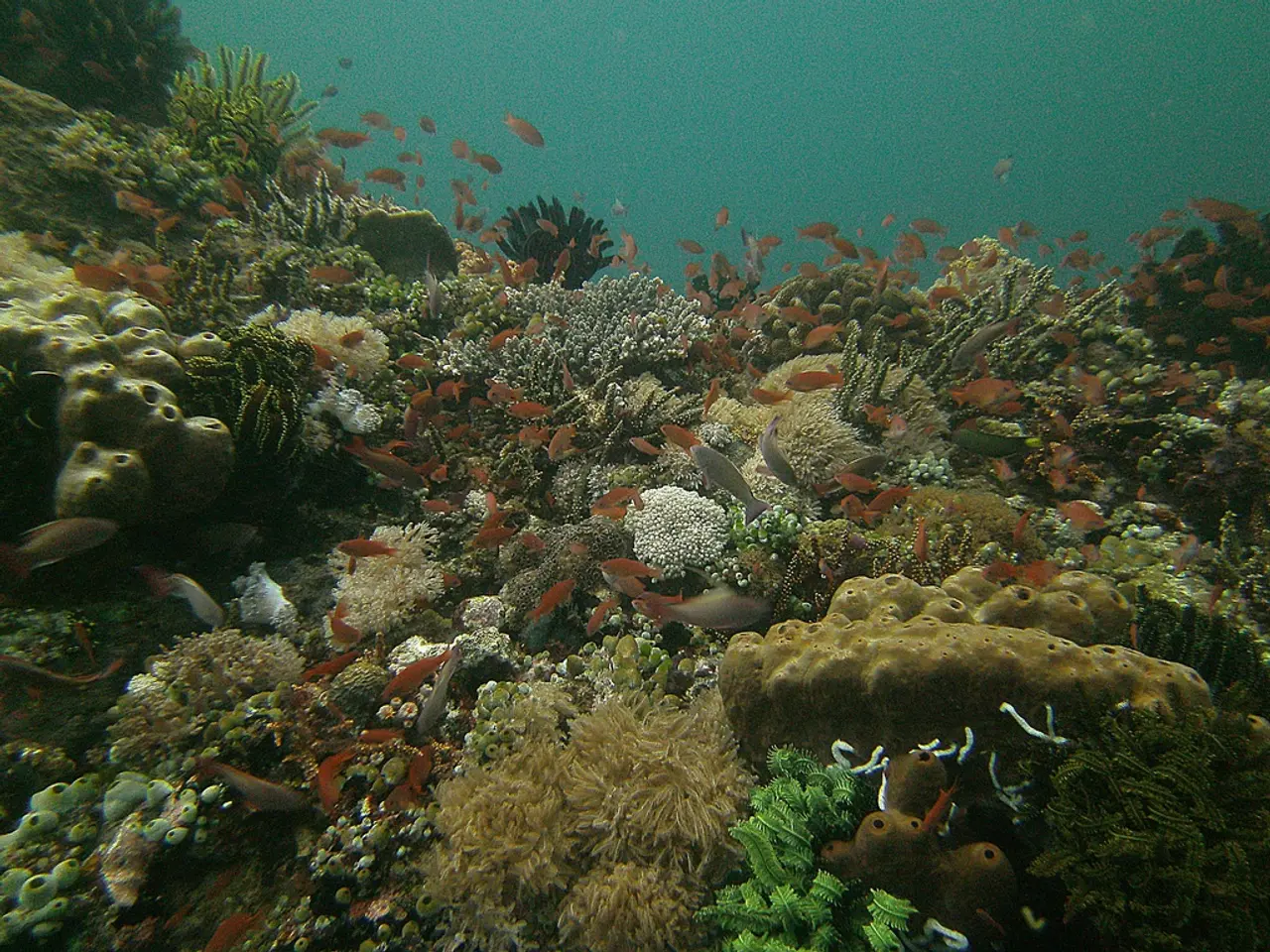Researcher at Scripps Oceanography Recognized with Young Investigator Honor
Researcher Simone Baumann-Pickering Awarded Young Investigator Program Grant
Simone Baumann-Pickering, a renowned marine mammal acoustics researcher, has been selected as one of the 300 recipients for the prestigious Young Investigator Program (YIP) this year. This program, initiated in 1985, is one of the oldest and most selective scientific research advancement programs in the United States, with 656 recipients to date.
Baumann-Pickering's research focuses on understanding the impacts of naval activities on marine life, particularly marine mammals such as whales and seals. Her work is crucial for mitigating the effects of sonar on marine ecosystems and ensuring compliance with the Marine Mammal Protection Act.
Through her research, Baumann-Pickering aims to improve the understanding of how soundscapes can be a measure for species composition and density, how animal density may shape sound propagation, and how sound can be used to interpret species interactions. This knowledge will be valuable to the U.S. Navy sonar community, as understanding the relationship between the intensity of acoustic backscatter and ambient sound is relevant to their operations.
Baumann-Pickering's research will be funded through the YIP, which provides each awardee with up to $170,000 annually over a three-year period for research. This funding will support her work using passive acoustic recorders to capture changes in the soundscape throughout all layers of the sea.
In addition to her research, Baumann-Pickering is also involved in mentoring young researchers at institutions like UC San Diego, where students work on marine acoustic research topics such as spatial distributions of high-frequency callers. Her work in fostering new talent in marine bioacoustics is instrumental in strengthening the broader scientific community’s ability to study and mitigate human impacts on marine ecosystems.
Larry Schuette, ONR's director of research, praised the recipients of the YIP, stating that they demonstrate visionary, multidisciplinary thought that helps the U.S. Navy anticipate and adapt to a dynamic battlespace. Baumann-Pickering's work exemplifies this, as her research bridges marine conservation efforts with the operational needs of the sonar community, contributing both to the understanding of marine mammal acoustic ecology and to shaping responsible naval practices.
Despite limited publicly available information on Baumann-Pickering's specific YIP awards, her active role in contemporary marine acoustics and sonar impact studies is well documented in navy-related research programs and academic mentoring contexts. Her contributions to the field, including investigations into the effects of anthropogenic sounds on marine mammals and providing scientific data to support government and naval policy decisions regarding sonar use, have been integral to the U.S. Navy's marine resource investments.
In conclusion, Simone Baumann-Pickering's research and mentorship in marine mammal acoustics, particularly in relation to U.S. Navy sonar impacts and marine conservation, are making significant strides in understanding and mitigating the impacts of naval activities on marine life. The funding provided by the YIP will allow her to continue her work and further our understanding of the complexities of marine acoustic ecology.
Simone Baumann-Pickering's research, which bridges marine conservation efforts with the operational needs of the sonar community, will also contribute to the health-and-wellness of marine life by mitigating the effects of sonar on marine ecosystems. With the funding from the YIP, she will utilize technology and science to advance fitness-and-exercise of marine mammals by studying their soundscapes and behaviors.




